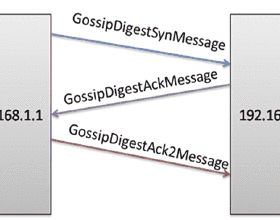Collaborative-learning based recommender systems emerged following the success of collaborative learning techniques such as Federated Learning (FL) and Gossip Learning (GL). In these systems, users participate in the training of a recommender system while keeping their history of consumed items on their devices. While these solutions seemed appealing for preserving the privacy of the participants at a first glance, recent studies have shown that collaborative learning can be vulnerable to a variety of privacy attacks. In this paper we propose a novel privacy attack called Community Detection Attack (CDA), which allows an adversary to discover the members of a community based on a set of items of her choice (e.g., discovering users interested in LGBT content). Through experiments on three real recommendation datasets and by using two state-of-the-art recommendation models, we assess the sensitivity of an FL-based recommender system as well as two flavors of Gossip Learning-based recommender systems to CDA. Results show that on all models and all datasets, the FL setting is more vulnerable to CDA than Gossip settings. We further evaluated two off-the-shelf mitigation strategies, namely differential privacy (DP) and a share less policy, which consists in sharing a subset of model parameters. Results show a better privacy-utility trade-off for the share less policy compared to DP especially in the Gossip setting.
翻译:暂无翻译




